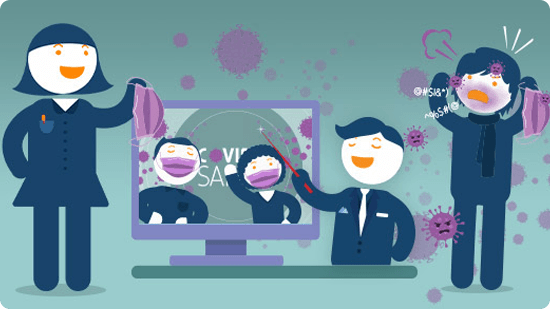What are amiable customers?
If you work in customer service, chances are at one point you’ve probably wished you could use the classic Jedi Mind Trick, wave your fingers through the air and telepathically influence the mind of a customer.
However, there are certain customers who are just so non-confrontational and so amenable it’s almost as if they’re a gift from Yoda himself. I’m talking, of course, about those people with the amiable type personality.
Psychologists often split the various personality types into four categories:
• Driver – the people who want to drive the boat.
• Expressive – the people who want to move around on the boat.
• Analytical – the people who compulsively pick apart every aspect of the boat.
• Amiable – the people who don’t like to rock the boat.
Customer service is about – shock horror – serving your customers. All of them. Even the amiable ones. If you deal with your easy-going customers properly, then guess what: They’ll soon become repeat amiable customers.
When it comes to customer service, heed the words of a wise green Muppet who could lift space ships out of a swamp with nothing but his mind: “Do or do not. There is no try.”

How do you recognise an amiable customer?
An amiable customer is likely to not want to complain, even if something is wrong with their service. Amiable individuals don’t want to make a fuss. They want to avoid conflict.
This means that if you’re faced with a disappointed amiable customer, chances are you’ll hear something like this:
“This wasn’t the dish I ordered, but it’s fine I’ll have it anyway.”
The greatest mistake you can make as a customer service provider is to assume that just because this person has ‘forgiven’ the blunder means that they’ll ‘forget’ the blunder.
If you don’t respond appropriately to this customer, you may save yourself a tiny amount of time and effort today, but guess what? You’ve just lost a future customer to the Dark Side…
So what can you do?
1) Seek an understanding why the amiable customer is disappointed.
Do not say to yourself: “Oh, this customer said it’s fine, so I don’t have to do anything.”
The customer has brought the issue up, so despite the overly polite tone something is very much wrong. You need to let them know that you value their satisfaction and genuinely would like to understand and fix the problem.
“Thank you for letting me know; it’s important we get your meal right so I’ll go and fix that now.”
2) Mirror the language and expressions the amiable customer uses.
If you want to keep the amiable customer comfortable and happy, you need to mirror their language. As noble as your intentions may be, a response like this will do way more harm than good:
“Getting an order wrong is a big deal for us and we take your satisfaction very seriously!”
The customer is actively avoiding making a ‘big deal’, so if you turn around and make it for them, you’re actually lightsabering yourself in the foot.
3) Explain and set in motion a proactive solution for the amiable customer.
Because the customer doesn’t want to put anyone out, you need to compensate for their negative experience without making them feel bad about it.
Don’t put the burden of deciding how to solve this problem on the amiable customer’s shoulders. Let them know exactly how you intend to solve their problem, and begin to do so. This will reassure them that their complaint was not an inconvenience for you – even if it really was.
“I’ve spoken to the chef; we’ll have the correct dish ready for you in just a moment, thanks again for letting me know.”
Dealing with amiable customers
Despite the seemingly innocuous nature of the complaint, dealing effectively with amiable customers is vital. A little extra effort today might save you a potential repeat customer down the track. All you have to do is identify the problem, mirror the customer and put in place a solution. That’s not so hard is it?
Discover how to deal with all four personality types in customer service and check out our online training modules. And from all of us here at Canity: May the customer service be with you.













